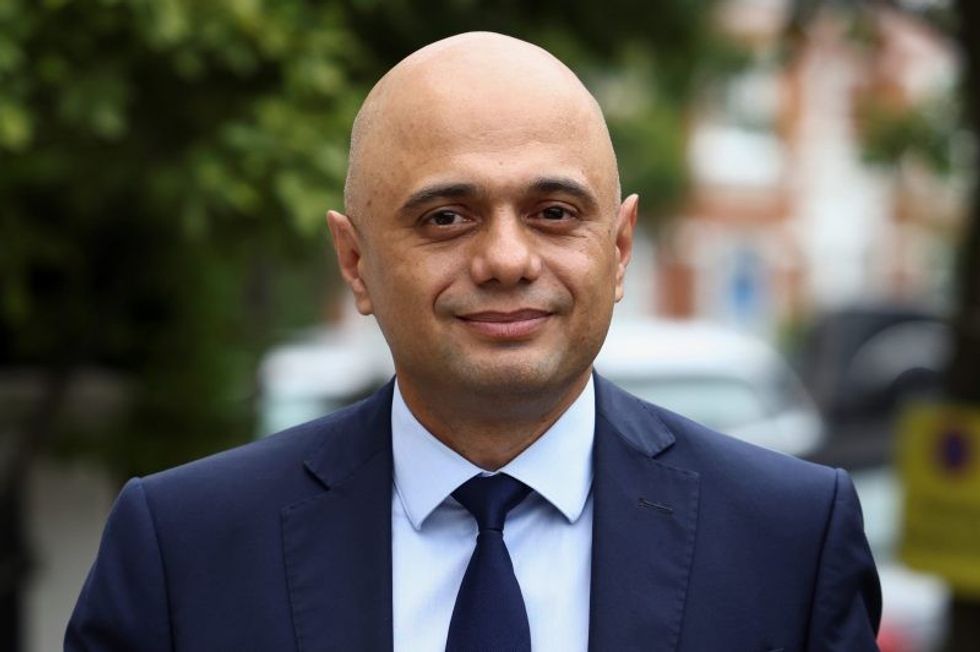BRITAIN said that healthcare workers, social care staff and the most vulnerable will still get Covid-19 tests without any charge when it ends free testing for the general public next month.
When he announced all coronavirus restrictions would be scrapped in February, prime minister Boris Johnson said free tests would end on April 1, saying the country could not afford their cost.
Health minister Sajid Javid said people at risk of serious illness from Covid-19 would continue to get free tests if they developed symptoms, along with the NHS staff, those working in social care and those in other high-risk jobs.
Covid cases and hospitalisations have risen in recent weeks, but the government said more than 55 per cent who tested positive in hospital for the virus had been admitted for other ailments. Meanwhile, booster vaccine shots are being rolled out for older and immunosuppressed people.

Under the guidance from April 1, people who develop symptoms such as a high temperature or other respiratory infections will be advised to stay at home and avoid contact with other people until they feel better and no longer have a fever.
Those who test positive for Covid will be advised to stay at home for five days and avoid any contact with other people for five days.
"We have made enormous progress but will keep the ability to respond to future threats including potential variants," Sajid Javid said.
Meanwhile, official figures last week revealed that Coronavirus levels reached all-time highs in Scotland and Wales and are nearing record levels in England, with around 4.2 million people infected across the UK.
The steep rise in infections is due to Omicron BA.2, a more transmissible variant of Omicron, said the Office for National Statistics (ONS).
Around 4.26 million people were believed to have been infected across the whole UK last week, just shy of the 4.3 million record set in the first week of 2022.
Britain has been one of the countries hardest hit by the pandemic, recording 164,454 deaths.
(Agencies)


















 FILE PHOTO: A general view shows British Steel's Scunthorpe plant, in Scunthorpe, northern England, Britain, March 31, 2025. REUTERS/Dominic Lipinski
FILE PHOTO: A general view shows British Steel's Scunthorpe plant, in Scunthorpe, northern England, Britain, March 31, 2025. REUTERS/Dominic Lipinski
The FBU is planning to introduce new internal policies and wants the TUC to take action as well. (Representational image: iStock)
FBU chief raises concern over rise in racist online posts by union members
THE FIRE Brigades Union (FBU) and other trade unions are increasingly concerned about a rise in racist and bigoted online comments by their own members and officials, according to Steve Wright, the FBU’s new general secretary, speaking to the Guardian.
Wright said internal inquiries have revealed dozens of cases involving members using racist slurs or stereotypes, often aimed at asylum seekers.
He said similar issues were reported in other unions, prompting a joint campaign to counter false narratives around immigration and race promoted by far-right groups online.
“People with far-right views are becoming more brazen in what they do on social media, and I’ve witnessed it with my own union around disciplinary cases and the rhetoric of some of our own members,” Wright said to the newspaper.
He added, “Some of our members and sometimes our reps have openly made comments which are racist and bigoted. In my time in the fire service, that has gone up.”
The FBU is planning to introduce new internal policies and wants the TUC to take action as well. A formal statement addressing far-right narratives will be launched at the union’s annual conference in Blackpool next month.
Wright cited the influence of social media and figures like Donald Trump and Nigel Farage as factors contributing to these incidents. “It feels like an itch that we’ve got to scratch,” he said.
The FBU barred a former official last year for allegedly endorsing racist content on X, including posts from Britain First and Tommy Robinson.
Wright also warned that the union could strike if the government moves to cut frontline fire services.